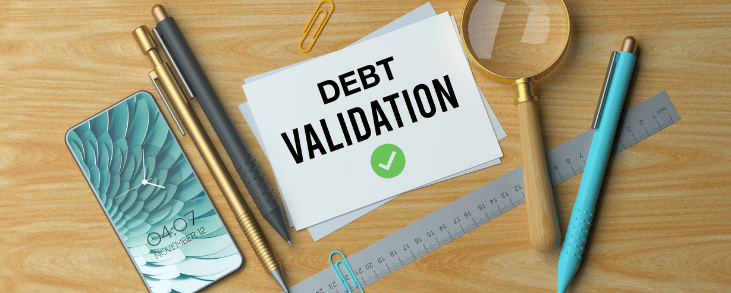
One cannot outrun debt, no matter how hard they try. Exactly, debt is a creature that stalks your life in the dark, chasing you from place to place. Just when you’ve given up hope of ever hearing from that debt collector again, you receive a letter in the mail.
Before you hand over any money to a debt collector, verify that the debt is yours. Legally, debt collectors must issue you a debt validation letter, which details the debt, the amount owed, and other details.
Send the debt collector a debt verification letter if you’re still unsure about the debt you’re being asked to pay and need clarification. If you intend to pay the amount in collections, this is the best alternative.
What to include in debt validation letter
- Which creditor do you allegedly have an outstanding debt with?
- Within 30 days of being contacted, you have 30 days to challenge the debt, but if you do not, the debt collector might assume that the claim is real.
- The debt you incurred.
- Debt collectors must produce documented proof of the debt if you dispute it in writing
A Sample Letter Dispute a Debt
When you’re being bothered by debt collectors, it can be difficult to write a debt validation letter. The good news is that this guide on debt validation letter will offer you the relief you need—at least for the time being. When you write a letter disputing your debt, collectors can only engage with you if it is in reaction to your letter (and it has to be in writing).
As a guide, you can use the letter below as a starting point for your own. Because of fraudulent behavior, this person does not owe money and has already informed the creditor and credit bureaus of this fact.
- Your name
- Your return addresses
- Date
- Name of the debt collector
- The debt collector’s address is [Debt collector’s name
- Including debt account number, if applicable
- Greetings, debt collector
Upon receipt of your written request, debt collectors are obligated to provide you with any supporting documents they may have. Collection operations may be put on hold until they have enough evidence to show your debt. Be careful if they send you documents; compare it to your own records.
It’s possible to work out a payment plan or make a partial payment to the debt collector, depending on whether the debt collector is correct in their claim that you owe the money. You may need the assistance of a debt collection lawyer if you’re not sure what to do next and the amount at stake is significant enough
Final Thought
Although you have the right to request a variety of information, debt collectors are only required to disclose information on the original creditor, the balance owing, and the identity of the individual who owes the debt before they may begin collecting on the balance.
Obtaining even that small bit of information, on the other hand, can assist you in determining whether you genuinely owe the debt, whether it has passed the statute of limitations, and whether there has been an error, such as an overstatement of the amount owed.




